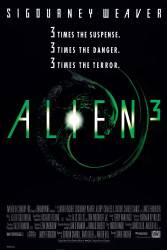
Question: How did the alien egg get on board the Sulaco? I thought it was by the Queen but she did not have that organ that she was connected to when we first see her and so she couldn't reproduce eggs.
Answer: As we don't know the precise details of the Alien reproductive cycle, we don't know for a fact that the Queen would be unable to produce eggs without the sac seen in the film. The only other possibility is that somebody got the egg up there somehow. The only possible candidate would seem to be Bishop, who would have had to somehow have got the egg from somewhere, and flown it up to the Sulaco while Ripley was off rescuing Newt. There doesn't seem to have been time for this, so the only remaining option seems to be that they did indeed arrive with the Queen in some fashion, either laid while up there or, possibly more plausibly, rescued intact from the destruction caused by Ripley and carried somewhere on the Queen's body.
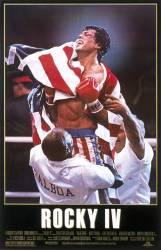
Question: Why and who were the guys following Rocky in the car when he was training?
Answer: They were Rocky's chaperones. They were even seen in the cabin Rocky was staying in and playing chess with Duke.
Chosen answer: People who worked for the Soviet government assigned to spy on Rocky.
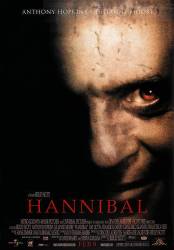
Question: How did Hannibal manage to make it onto a commercial airplane at the end of the movie? Even if he had a fake ID, wouldn't being on the FBI's Ten Most Wanted list make it virtually impossible for him to get through a high security place like an airport, where the feds would likely instruct security staff to stop anyone that even remotely resembles him? The fact that he cut off his own hand at the end of the film would make him easier to spot, as the FBI would definitely share that new detail about him.
Answer: As seen in the first film and in this one, Lecter demonstrates an almost supernatural ability for eluding the law and seemingly being in two places at once. This film was made in the year 2000, before airport security became extremely tight in late 2001. At that time (before 9/11), it was still possible to enter an airport's main concourse through the baggage claim or even from the tarmac without passing through rigorous security. As ingenious as Lecter was, he could have accessed the airport in a number of ways back then. Relieving another passenger of his boarding pass and identification would be no problem for Lecter, either (simply leave the passenger's body in an airport toilet and assume his identity). For the most part, it was Lecter's calm, self-confident charm that allowed him to slither through society always ten steps ahead of the law.
Answer: Perhaps he bribed his way through security onto the plane. Or maybe he murdered anyone who even remotely challenged him. He was probably wearing a disguise. It's possible that he had been planning this whole thing for an unspecified amount of time. And don't forget: he is a genius. And determined. He wouldn't let a little thing like protocol get in the way of his escape.
Answer: There is an assumption that he cut his hand off in the end. Ask yourself this for a very graphic movie why did they not show the chopped of hand. You just hear the chop but no sound from Lecter and only an emotional reaction from Starling. It is only alluded to and even if he did happen to chop it off he would be in so much pain as he acknowledged this was going to hurt he would not have been able to escape without help from Starling.
On the plane, you only see him use his right hand, and his left arm is in a sling. Further explaining, he did cut his own hand off to be freed. If he cut Starling's hand off, she would have possibly bled to death, or at least enough that she couldn't have run for him.
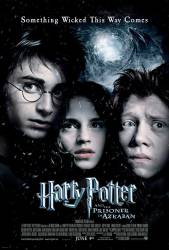
Question: Why does Dumbledore purposely hit Ron's injured leg?
Answer: Ron had previously bragged to Hermione about how bad his leg was injured, and had lied and said his leg might be chopped off. When Dumbledore later hits Ron's leg, he is saying that a child's voice no matter how honest and true. He is giving Ron a little payback for exaggerating.
Highly unlikely Dumbledore knew what Ron told Hermione at the Whomping Willow. Ron's leg was seriously hurt, so he wasn't "bragging" about it, nor did he lie. Ron, who is a bit of a hypochondriac, was simply embellishing to be more dramatic and to gain Hermione's sympathy. Hardly anything Dumbledore would consider worth giving him "payback" by inflicting pain.
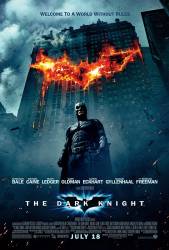
Question: In the scene where Batman shows Lucius his giant sonar thing, why is he talking in his big scary voice? Lucius knows who he is, so why does he bother disguising his voice?
Answer: It's habit, and a sensible one at that. When he's in the mask, when he's being Batman, he uses the voice, even if the person he's with knows who he is. If he drops back to his normal voice with some people, it sets the precedent for using it while wearing the cowl, which means that he's more likely to slip up and use it around people who don't know, potentially revealing his true identity. If he sticks rigidly to using the voice when kitted up as Batman, regardless of situation, it minimises that possibility.
Answer: At the bottom of his cowl Batman has devices designed to keep his voice at that level. The director revealed it, of you look at the right screenshots you can see speakers.

Question: Is there some reason that we are considently seeing planes fly over her house? Is that supposed to symbolize something?
Answer: Jess' house is supposed to be on the main flight path of Heathrow airport. Her mum and dad work there.
Answer: I doubt it; it's probably because the film is set in the Borough of Hounslow, which is in the flight paths of many London airports, including Heathrow.
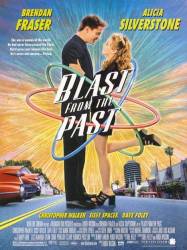
Question: Can anyone translate what Adam and his dad are saying when Adam is a teenager and they are in the classroom?
Answer: Adam: Tempus fugit (Latin) = Time flies. Dad: Que les bons temps roulent! (French) = How good times roll! Adam: Geradeaus, dann links (German) = Straightforward, then left. Dad: Sorgen Sie bitte dafür, dass die [das] Gepäck sorgfältig behandelt werden [wird] (German) = Please make sure that this luggage will be treated carefully. Adam: Haben Sie etwas Nettes in Leder? (German) = Do you have something nice in leather?

Question: On the plane, as Gerry is wrapping her stump and right after he admits he hadn't known cutting her hand off would work, Segen says something quietly, then adds "Now I'm just a liability." What does she say right before "Now I'm just a liability"? I can't hear what she says (it might not be English) and it's not in the closed captioning or in any transcript I've been able to find online.
Answer: Segen says in Hebrew, "עכשיו אני סתם עול" (phonetically pronounced, "achshav ani stam ohl"), which means "Now I'm just a burden." Then Segen says in English, "Now I'm just a liability."

Question: In the scene where Solara hijacks the car, why does the man who had Eli's sword in him stop her from starting the car, take out the blade, and get out from the car and kneel on the ground? Was he trying to say something to Solara or the leader?
Answer: Most likely, Redridge is giving Solara a chance to escape Carnegie's regime. At this point, he knows he's dying, but perhaps still wants the best for her. Remember, he had a crush on her the whole movie (blocking her while she was getting Eli's canteen filled, bargaining with Carnegie for her before chasing after them, even asking Eli nicely to give up the book after the gunfight in the house). I think it may also have been used as a self-redemption moment for one of the bad guys.
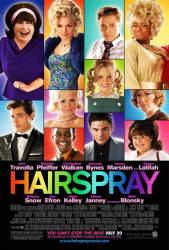
Question: Why is it that Tracy's hair keeps getting more and more highlights through scenes?
Answer: I believe her hair is also symbolic of white and black integration.
Chosen answer: It's common for filmmakers to subtly alter a character's appearance throughout the film to reflect how the character changes. In this case, as Tracy comes out of her shell, her personality becomes brighter, stronger, and more pronounced, and that is shown by her increasingly lighter hair.
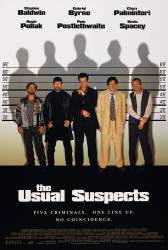
Question: How did Soze end up in the police station after he escaped the boat in the first place? If he had vanished after the bombing, he wouldn't have to make up the stories and he wouldn't have been identified by Kujan.
Answer: Kint/Soze ended up in the police station because he simply didn't get away in time.
Answer: Soze ended up back under arrest and for some questioning as 'Verbal Kint'. He never really vanished, he's just playing two parts/people. He really vanishes off the scene by the end of the movie after he tricks Kujan.
With the exception of what's known to have happened on the dock, the entire story is a lie told by Verbal Kint to Agent Kujon. Kujon realises this after Kint leaves the office but not in time to catch up. The entire movie is about a habitual liar making up a story about what happened on the dock. He may be Keyser Soze or an alter-ego variant but even Keysers rep is subject to question as it was told by the same liar. Verbal himself said about Keaton, "He was a grounded guy, a cop. If you think the husband did it then you're right." He was telling on himself as sociopaths will do when they think they're smarter than everyone around them.
Answer: All he had to do was kill them on the ship, blow it up, and leave. The whole BS story with the cops didn't even have to happen.
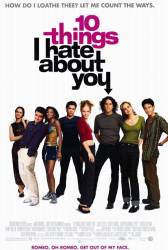
Answer: A 1964 Dodge Dart.
Answer: Don't know if it's confirmed but that's believed to be Heath Ledger's Dodge Dart that he had at the time.
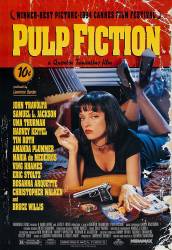
Question: When Jules and Vincent go to the students' flat at the beginning of the movie, Jules asks the guy on the couch to tell him where the briefcase is. He begins by saying "You. A flock of seagulls. Where is it?" What does he mean by calling him "a flock of seagulls"?
Chosen answer: It's a reference to his hairstyle; A Flock Of Seagulls was a new wave band from the early 1980s who were as well known for their frontman's unusual hairstyle as their sound. You can learn more about them here: http://en.wikipedia.org/wiki/A_Flock_of_Seagulls.
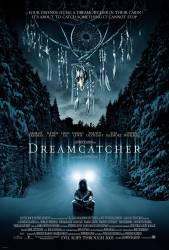
Question: What kind of power did each of the four friends have? Pete can locate things, but what about the other besides reading people's minds?
Answer: Each of the 4 main characters; Jonsie, Pete, Beaver and Henry could communicate with one another telepathically. In addition to this power, Jonie also possessed a photographic memory. Pete could find or locate things. Henry could read other people's minds. Beaver had premonitions or some sort of sixth sense. He made a phonecall to Jonsie, knowing something was wrong and wrote ssdd on the phone booth.
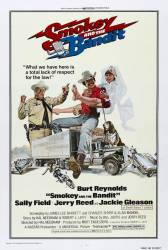
Question: What did the trooper mean when he said, "Didn't you know this ain't Saturday"? It always makes me wonder.
Answer: The trooper on the motorcycle had just landed in the water. In older days, the typical day to take a bath, wash hair, etc. was Saturday. The trooper in the car (once he saw the motorcycle trooper was okay and wet) just made a joke about him taking a bath.
It was a redneck joke, playing off the stereotype that hillbillies bathe once a week on Saturday or Sunday.
Answer: I think the trooper makes this joke in reference to Evel Knievel, a popular performer of the day. His shows, which prominently featured motorcycle stunts (particularly jumping) usually occurred on the weekends (i.e. Saturday).
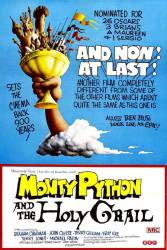
Question: In the Camelot scene, there is a man that says something like "I like to push the pramalot" what is he saying and what does it mean?
Answer: He says "I have to push the pram a lot!" implying that he's left to look after the children.
Answer: There isn't much meaning. It's a funny idea that a knight has to push a stroller and the words "pram a lot" are there because they rhyme with Camelot.
A pram is a stroller, so the knight is saying that he is taking care of a baby.

Question: Throughout Transformer history, has it ever been known who or what was responsible for the creation of the Autobots and Decepticons and for what purpose?
Answer: Primus created the original Thirteen Transformers, later known as the Thirteen Primes, to help him defeat his nemesis, Unicron. The Thirteen Primes were the start of the Cybertronian race, which eventually turned on itself when Megatron, formerly Megatronus, started the War and his Decepticon faction.
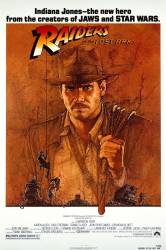
Question: I first saw "Raiders" at the cinema when it was released in Australia and I distinctly remember a scene which has never appeared on video or DVD. After the end credits, there's a cut back to the crate housing the Ark in the warehouse, and the U.S Govt. stamp on the side of the crate is slowly burning off, as if a fire within the crate is scorching it. One other friend (also in Australia) also remembers. Does anyone else remember this, and can anyone shed any light on what happened to this scene?
Answer: I also remember this scene. After the ark is sealed, the camera performs a close up of the side of the crate. The stamp reads "Top Secret Army Intel 9906753 Do Not Open" This stamp is burned off just like the swastika is in the scene on the submarine, because in the eyes of God, no nation is holy or worthy enough to claim ownership of the ark. However, this final scene was cut (the burning of the stamp) from the film for a variety of unclear reasons. While it was in theaters, this scene was not included on the DVD version.
Add me to this. We saw the movie in a "pre release" version in Orlando Florida. No advance warning of the movie. We went to see another flick and at the end were "invited" to see this if we were willing to critique it afterwards. This scene was included. I also always wondered why the change.
I also remember seeing this mysterious 'burning' of the logo, most likely it was on a VHS copy of this movie. Yes, it did exist.
I saw it in former Czechoslovakia in the second half of 80's in cinema (west movies came to the east countries' cinemas years later). And I thought it was a great joke that burning out the swastika wasn't just because the Nazis are bad but because nobody is great enough to own the arc. Then after the Velvet revolution I saw the film again on TV (beginning of 90's) and said everyone around: watch it until the end, wait on the post-credit scene, there will be a surprise.
And there was a surprise. The scene was cut off! I was angry on the TV they didn't show the scene. I cannot be influenced by internet discussion or urban legend. The internet didn't exist yet.
I saw it in Portland, Oregon, and was so impressed with the message it carried, that I told friends and we went several times just to see it. Funny thing was when I mentioned it a few years ago, many people said I was a LIAR that it never happened. I could not convince anyone. It was removed because it wasn't Politically Correct. USA is a force for good, God would not burn off AMERICAN TEXT! BUT WE DID SEE IT. Thanks to our Australian eye witness, we know we did not imagine it.
Answer: I also remember that scene.
Answer: This scene never existed. Plus, the crate never has a US Govt logo stamped on it. https://www.google.com/amp/s/www.cbr.com/movie-legends-revealed-alternate-ending-for-raiders-of-the-lost-ark/amp/.
Answer: I remember the side of the crate being "charred" when it was in the ship's cargo hold, in the scene when the Nazi's arrived in the submarine. It was the Nazi swastika on the side of the crate that was burned off. It also showed a rat keeling over dead from the energy it emitted. (I just watched this again on the Paramount cable channel.)
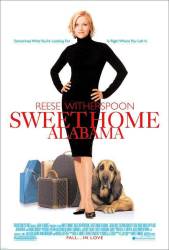
Question: At one point, Melanie mentions that Jake got her pregnant several years ago. Was the baby stillborn or did she get an abortion?
Answer: She says something to the effect of "mother nature had other plans" leading audience to believe she had a miscarriage.
Answer: She had an abortion because she said it would have altered her future plans and admitted to feeling so ashamed.
Melanie did not have an abortion. When she's talking to Jake's mother, Stella Kay, at the bar, it's mentioned that Melanie had a miscarriage. Melanie felt ashamed because after losing the baby, she ran out on Jake and their marriage to pursue her own goals in New York.
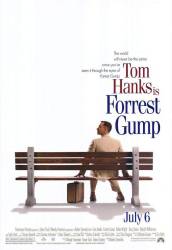
Answer: Agreed the Queen could have stowed the eggs away on her body as Alien bodies, especially one her size, could easily have a couple of eggs hidden upon her, and we would not know. They are masters of disguise these creatures and can merge in with their own environments or others...what's to say an egg can't look like part of the Queen's body? In addition, could Facehuggers not attach themselves to the Queen's body and merge with it somehow? Flatten themselves against her skin maybe?